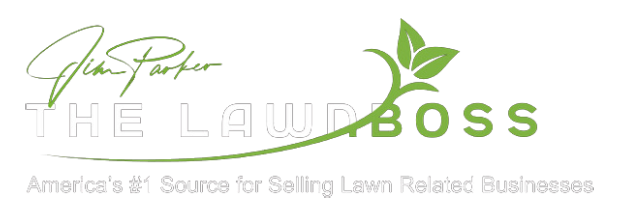It’s the first and probably most important question I get from every business owner: what is my lawn or landscape business worth? If you’re ready to sell, you probably have a lot of reasons for wanting to get out of your business. But you also want to walk away knowing you received full value for all those years of hard work. That’s why you need an experienced business broker who specializes in selling landscape type businesses to help guide you through the process.
The internet makes it easy for owners to access information about selling their lawn or landscape business. Unfortunately, some of the information out there just isn’t very good. For example, consider the “rules of thumb” you’ll see about the selling price of a lawn maintenance business: a business with maintenance accounts is worth 10-12 times the value of your monthly recurring sales.” Or “a lawn maintenance company sells for 50-60% of gross sales (inclusive of ALL sales, maintenance, and “extras.”)
If it were that easy to value a business, anyone could do it. Here’s how a professional broker goes about it.
The first thing I do when I meet with a company owner is talk about confidentiality. You certainly don’t want employees, customers, or competitors to know you’re considering selling the company. I set up file sharing processes (with bank level security) so your valuable company information remains confidential and protected.
I’ll analyze the last three years of financial data for your business, along with the current years profit & loss (P&L) sheet. I’ll examine your revenue mix and your revenue streams and ask questions about trends in sales or other issues that might affect value. I’ll ask about the age and condition of your equipment and vehicles. I’ll take a look at any leases or other agreements you might have with landlords or customers. I’ll even ask how many hours a week you put into the business, doing the work personally – it all matters to a buyer.
Then, I’ll analyze debt, taxes, depreciation, and other factors that will affect value, including personal or one-time expenses that were run through the company. I’ll get to the bottom line for any prospective buyer: the number we call ‘discretionary earnings.” That’s what a new owner can realistically expect to make each month if he buys the company.
Next, I’ll take a look at companies that are similar to yours in size and in the same industry. I’ll examine recent sales of these comparable companies to get an idea of what actual buyers have paid over the past few months. It’s important to use real sales data when we start deciding what “multiple” we’ll be using as a sale price. The multiple is the number we’ll be multiplying the discretionary earnings by to get the most probable selling price for your company. The larger your discretionary earnings number, the larger the multiple will be.
This most probable selling price will be offered as my broker’s opinion of value, and it’s the starting point for discussion about selling your company. You might get several opinions from brokers, especially if the first opinion didn’t meet your expectations. Be wary if you get a number from a broker that’s wildly out of line with the one arrived at through the process I’ve described above. You may be thrilled to put your business on the market for such a high price, but the wrong price could mean you don’t sell for years, if at all.
A professional broker will give you a data-based opinion of what your business is worth in the current market. That includes analysis of the size of the pool of likely buyers, the availability of funding, and market trends in the industry.
The most probable selling price gives you information you can use in discussions with your family, your financial planner, and your accountant to determine if this is the right decision for you. If you need more money to retire or pursue your plans, you can consider building the business up for a few years, waiting until you have more saved for retirement, or waiting for market conditions to change.
Your business broker will also help you find qualified buyers for your business. I take the time to pre-qualify any potential buyers with the SBA so we know they can get the financing they’ll need to make the purchase. If they can’t get the funding to make the deal, there’s no reason to waste your time. That’s the reason I do all the detailed analysis up front and set an objective price; we don’t want to waste a buyer’s time either. Transparent and clear communication makes it more likely you’ll be able to come to an agreement and close the deal more quickly.
Knowledge is power. Selling your business is one of the most complex and important transactions you’ll ever be a part of. Make sure you find a professional broker who has experience and a system you can trust.
About the author: Jim Parker
 Jim Parker is an experienced business broker specializing in lawn and landscape businesses. The Lawn Boss is based in Clermont, Florida. As an industry leader he has served as the past president of the Business Brokers of Florida. Jim is a sought-after speaker, where he teaches others in his industry best practices in ethics, closing transactions, and finding qualified buyers. He consistently is a million-dollar award winner and is among the top 50 in sales of all business brokers.
Jim Parker is an experienced business broker specializing in lawn and landscape businesses. The Lawn Boss is based in Clermont, Florida. As an industry leader he has served as the past president of the Business Brokers of Florida. Jim is a sought-after speaker, where he teaches others in his industry best practices in ethics, closing transactions, and finding qualified buyers. He consistently is a million-dollar award winner and is among the top 50 in sales of all business brokers.
He is a Certified Business Intermediary (CBI) and is a Mergers & Acquisitions Master Intermediary (M&AMI). To contact Jim, visit thelawnboss.com or call (407) 927-8999.

